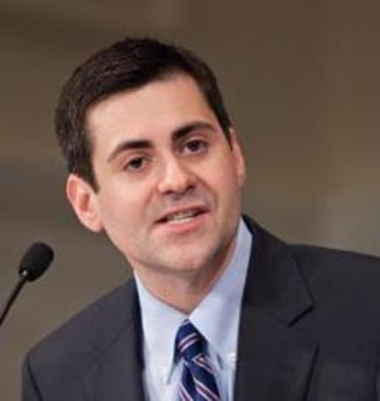An evangelical surrender in marriage wars?

In 2008, both Democrat Barack Obama and Republican John McCain supported defining marriage as the union of one man and one woman. In 2012, only Republican Mitt Romney supported traditional marriage, Obama having announced a change of heart six months before the election.
What about 2016? It's impossible to imagine a Democratic candidate not supporting the redefinition of marriage. As for Republicans, it's hard to see a gay-marriage-supporting candidate make it through the GOP primaries. But is it possible to imagine a Republican nominee who finds a softer way to oppose gay marriage without alienating either his party's older voters, who continue to overwhelmingly disapprove, or the millions of Americans who now support same-sex unions?
While an overwhelming majority of Democrats (69 percent) approve of gay marriage, just 39 percent of Republicans do, according to a Pew survey released this month. But Pew found that 61 percent of Republicans aged 18-29 approve of gay marriage, and 43 percent of those aged 30-49 approve. How will Republican candidates talk to them? A hint came this week, not from a politician, but from a leading evangelical.
Russell Moore, the 42-year-old president of the Ethics & Religious Liberty Commission of the Southern Baptist Convention, is a star in cultural conservative circles. Speaking at a recent conference of journalists organized by the Ethics and Public Policy Center, Moore, a strong supporter of traditional marriage, was asked what his ideal presidential candidate would say about the issue.
“I would want a presidential candidate who understands the public good of marriage,” Moore answered, “and one who is not hostile to evangelical concerns, and who is going to protect religious liberty and freedom of conscience.” To illustrate such protections of liberty, Moore mentioned ensuring that Catholic adoption agencies are allowed to place children only in traditional-marriage homes.
Missing from Moore's answer was a firm requirement that a presidential candidate be a vocal opponent of gay marriage. Indeed, at another point in his remarks, Moore noted that evangelicals are "beginning to realize that American culture is moving toward same-sex marriage."
"We have been saying, 'Look, same-sex marriage is inevitable in American culture,'" Moore continued. "It doesn't mean we should stop talking about it ... It means we need to start preparing our churches for a new generation."
Moore's fallback position – there's no other way to describe it – is to insist that once the marriage fight is lost, the beliefs of Americans who oppose homosexual marriage on religious grounds be respected.
Attacks on religious liberty are already well under way, Moore noted. But evangelicals must “recognize where the country is right now.”
Moore certainly doesn't represent all evangelicals. But his is an influential voice. And as far as marriage is concerned, younger evangelicals, and perhaps evangelicals as a whole, appear no longer likely to require that a political candidate go to war over the issue – and more likely to insist that leaders protect the faithful's beliefs.
From the Stillwater News Press, CNHI, via the Associated Press.
by Byron York, chief political correspondent for The Washington Examiner.
The Gayly – April 3, 2014 @ 10am





